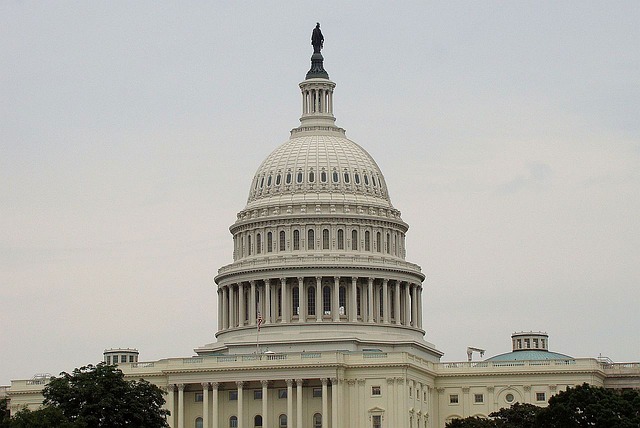Government Shutdown Averted With Stopgap Spending Bill

The Senate approved a stopgap funding bill known as a continuing resolution (CR) early December 21, 2024, narrowly averting an end-of-year government shutdown that would have affected millions of federal employees, including service members. The CR was necessary because the House and Senate could not agree on the federal budget as a whole.
This funding bill is separate from the 2025 National Defense Authorization Act (NDAA), passed earlier in December. The NDAA is the budget for the national defense efforts of a given year. The budget issues discussed below involve funding the entire federal government.
Stopgap Funding Until March 2025
The stopgap government funding bill, a significantly pared-down version of an earlier bipartisan agreement, temporarily extends funds for federal agencies through March 14, 2025, and includes supplemental funding for disaster relief and agricultural assistance.
The near-shutdown drama unfolded after some lawmakers demanded that any funding bill increase the debt ceiling.
This demand met with bipartisan resistance, as a key number of lawmakers on both sides refused to derail the process and send the government into a shutdown just days before the holidays.
Get military discounts direct to your inbox
Military Families Spared
The prospect of a shutdown raised serious concerns for military families, including the spectre of missed paychecks, disruptions to critical services like healthcare and childcare, and delays in benefits.
“A shutdown would have been devastating for many military families who rely on consistent pay and access to essential services,” stated Sarah Kline, spokesperson for the National Military Family Association, quoted in an AP News story about the negotiations.
The final temporary spending bill omits several provisions from the original agreement, including measures that enjoyed broad bipartisan support.
Temporary Funding
The stopgap bill approved by the House and Senate provides temporary relief, but it does not replace a properly negotiated federal budget. In spite of the measure’s passage, many sources, including the Associated Press, report that the underlying issues remain unresolved. Why?
One reason is that the debt ceiling debate is set to resurface in the new year. For military families, the averted shutdown provides a temporary reprieve, but lingering uncertainty remains.
Once the continuing resolution passed to avoid the pre-holiday shutdown gets close to expiring next year, the government will face the same funding question once more.
And in that scenario, what happens if another last-minute deal cannot be reached? The potential consequences of a government shutdown in March 2025 include but are not limited to:
- Over a million service members may work without pay.
- Approximately 200 thousand civilian employees could work without pay.
- 2 million federal employees could be furloughed or asked to work without pay.
- 7 million could temporarily lose food assistance program payments.
- Head Start and other services for food and education may be suspended.
- National Parks may close.
- Healthcare research may be delayed.
- Military Commissaries stateside remain open for 60 days into the new fiscal year without further funding.
Get military discounts direct to your inbox
Another Shutdown Threat in 2025
Will the government try to get an actual budget passed in 2025? Some might be willing to prolong this fight. One option considered in past years’ versions of the funding fight was a full-year continuing resolution that would replace an actual government spending bill.
In such a scenario, a full-year stopgap measure would not be a stand-in for an actual federal budget because of restrictions on how such money can be used.
In the words of an article about a previous year’s stopgap funding fight published by Military.com, a full-year CR would potentially “…cripple efforts to improve service members’ quality of life, including plans to fix and replace barracks that have made headlines in recent months for their disgusting conditions.”
The contunuing resolution passed to keep the federal government open until mid-March 2025 goes to the President’s desk for signature.
Get military discounts direct to your inbox
About the author
Editor-in-Chief Joe Wallace is a 13-year veteran of the United States Air Force and a former reporter/editor for Air Force Television News and the Pentagon Channel. His freelance work includes contract work for Motorola, VALoans.com, and Credit Karma. He is co-founder of Dim Art House in Springfield, Illinois, and spends his non-writing time as an abstract painter, independent publisher, and occasional filmmaker.


